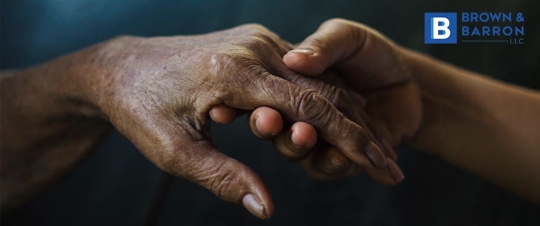As we grow older and more vulnerable, we become more susceptible to the terrors of elder abuse. Any time the elderly members of our society are victimized or harmed, whether it is intentional or due to negligence, it is unacceptable. It’s our collective duty as citizens to understand the problem of elder abuse and to help fight it.
How Common Is Elder Abuse?
According to the National Council on Aging, “Up to five million older Americans are abused every year, and the annual loss by victims of financial abuse is estimated to be at least $36.5 billion.” Studies have shown that 1 in 10 people above the age of 60 have experienced at least one form of elder abuse.
What Are the Types of Elder Abuse?
Elder abuse is illegal in all 50 states, and each state defines it a little differently. Most, if not all, forms of elder abuse can be categorized into these 5 types:
- Physical Abuse. This is the use of force or violence to cause intimidation, pain, or injury to an elderly person. This can be pinching, slapping, shoving, punching, or other forms of physical abuse. It also includes the use of restraints, such as binding or drugging the elderly to keep them from moving or to make them easier to manage or manipulate.
- Emotional Abuse. When people deliberately inflict fear, humiliation, or other forms of mental stress on an elder person through verbal or nonverbal acts, this is called emotional abuse of the elderly, and the damage can be as bad, if not worse, than physical abuse.
- Neglect. Some of the elderly depend on others for their basic needs, including food/water, shelter, healthcare, hygiene, using the bathroom, getting around, social interaction, and more. When these needs are entrusted to a person or a nursing home, and they fail to provide those basic needs, it is neglect. Sometimes an elderly person is completely deserted by the person or facility they count on for basic needs, a severe form of elder neglect called abandonment, which is often considered a separate category of elder abuse.
- Sexual Abuse. This involves any non-consensual sexual contact with the elderly, including those who are not able to give consent, due to dementia or other issues. It also includes sexual harassment or forcing the elderly to watch or listen to a sexual act.
- Financial Abuse. This is the theft, misuse, or hiding of money or other items of value belonging to an elderly person.
What are the Signs of Elder Abuse?
The signs of elder abuse can be seen in changes in appearance, mood, behavior, and more. The National Institute on Aging warns people to be on the lookout for these 6 signs of abuse:
- Seems depressed, confused, or withdrawn
- Isolated from friends & family
- Has unexplained bruises, burns, or scars
- Appears dirty, underfed, dehydrated, over- or under-medicated, or not receiving needed care for medical problems
- Has bedsores or other preventable conditions
- Recent changes in banking or spending patterns
Source: National Institute on Aging
What to Do If You Suspect or Witness Elder Abuse
Contact an Attorney: If you suspect elder abuse at a nursing home or other long-term care facility, it can be difficult to get truthful answers from the facility or its employees. An attorney can get the facts and the truth regarding your loved one’s situation. Due to lax inspections and toothless fines, the threat of a lawsuit is often the only motivation for nursing homes to combat elder abuse. In addition to getting the truth, a successful settlement or verdict can help cover the medical costs and pain and suffering, so that your family can move forward with peace of mind. For a free case evaluation regarding nursing home abuse or neglect in Maryland or Washington, D.C., contact Brown & Barron at 410-346-0206 or by clicking here.
National Center on Elder Abuse: The NCEA is a national elder abuse resource center, with more information and resources on elder abuse prevention, including information what to do if you suspect elder abuse.
National Domestic Violence Hotline: The National Domestic Violence Hotline is a nonprofit organization that offers free, confidential, and compassionate support, crisis intervention information, education, and referral services. The Hotline is available 24 hours a day at 1-800-799-SAFE (7233) or TTY 1-800-787-3224.
Adult Protective Services (APS): The APS mission is to “ensure the safety and well-being of elders and dependent adults.” Visit their site to donate or for information and a forum for solving the problems the lead to elder and vulnerable adult mistreatment.


